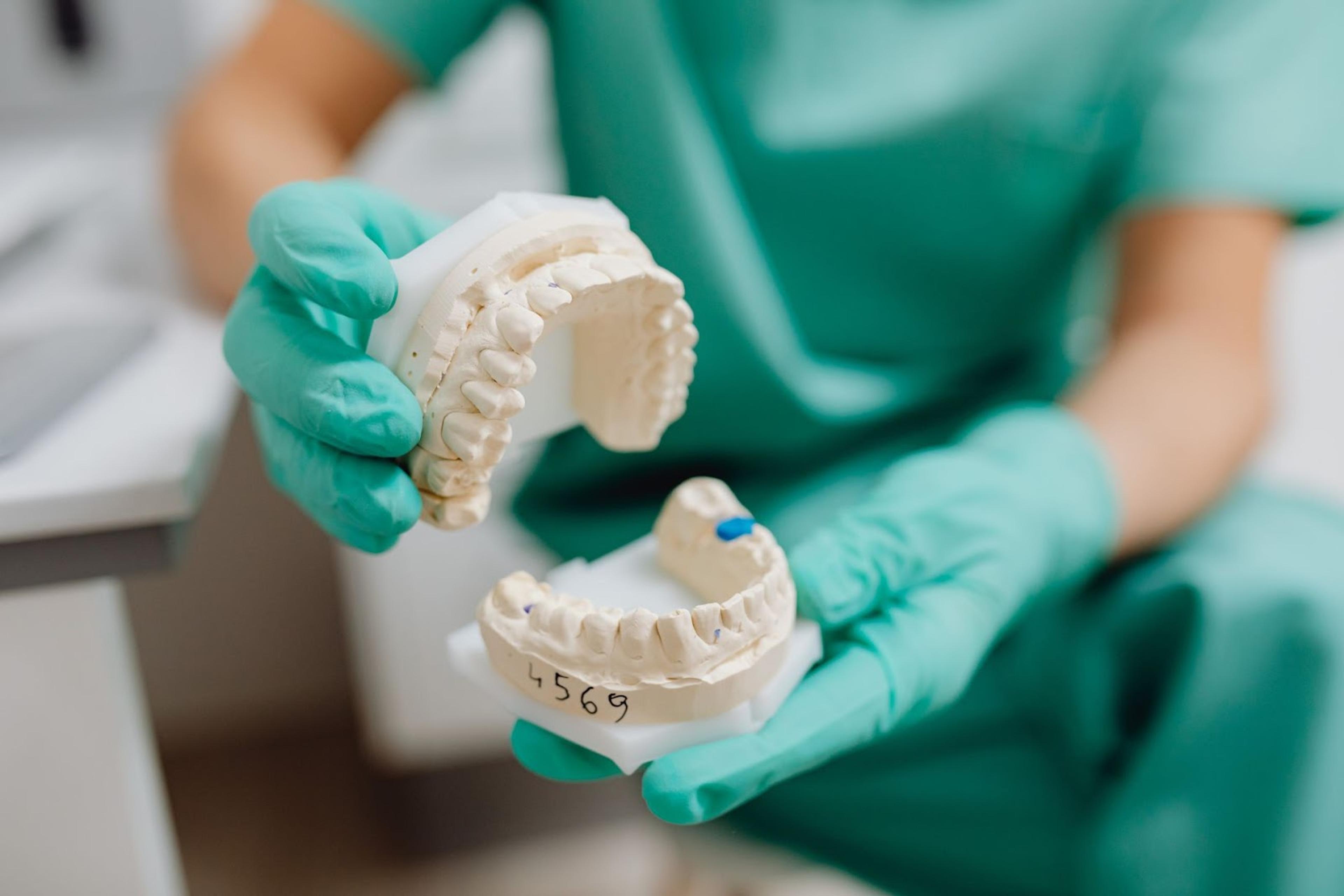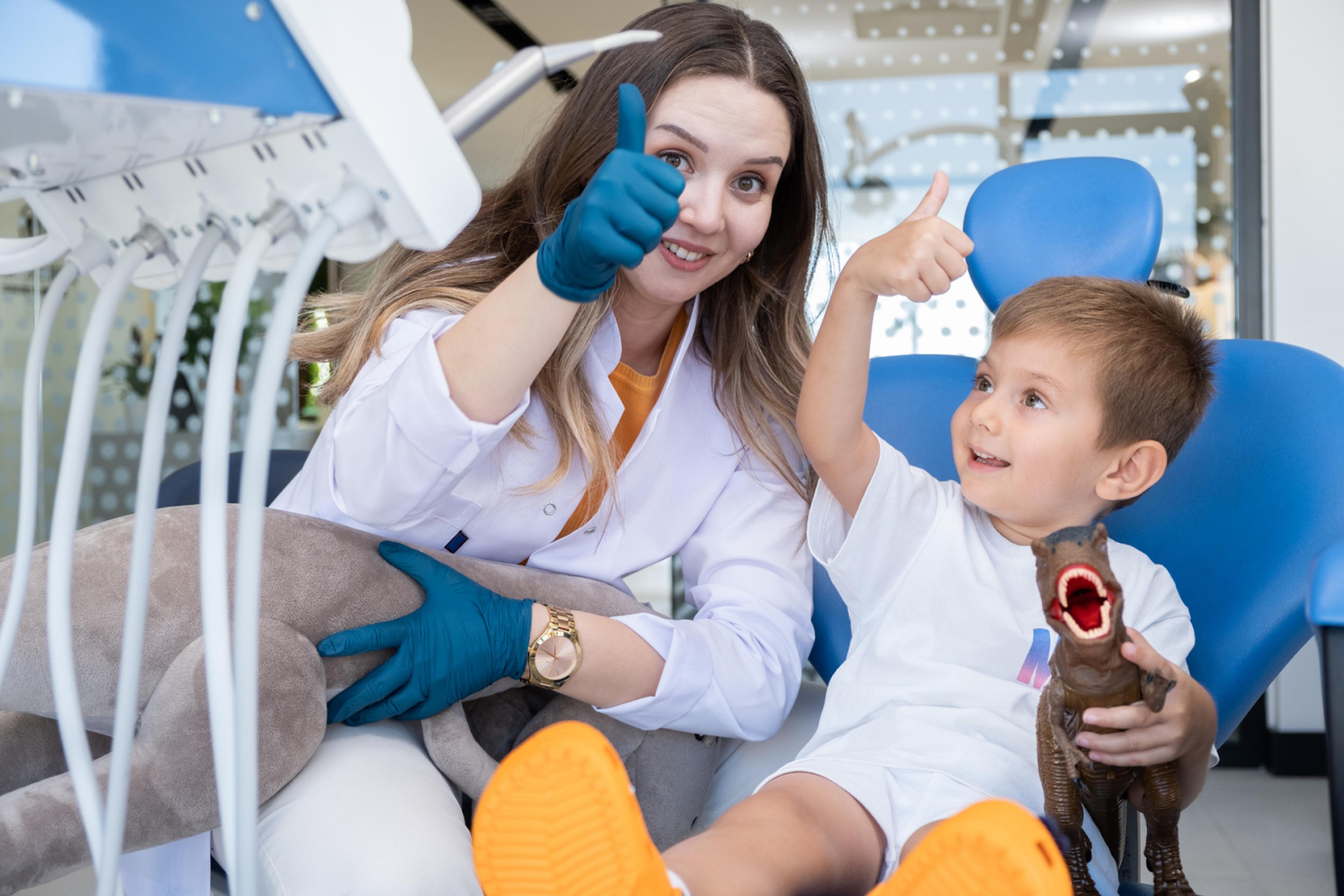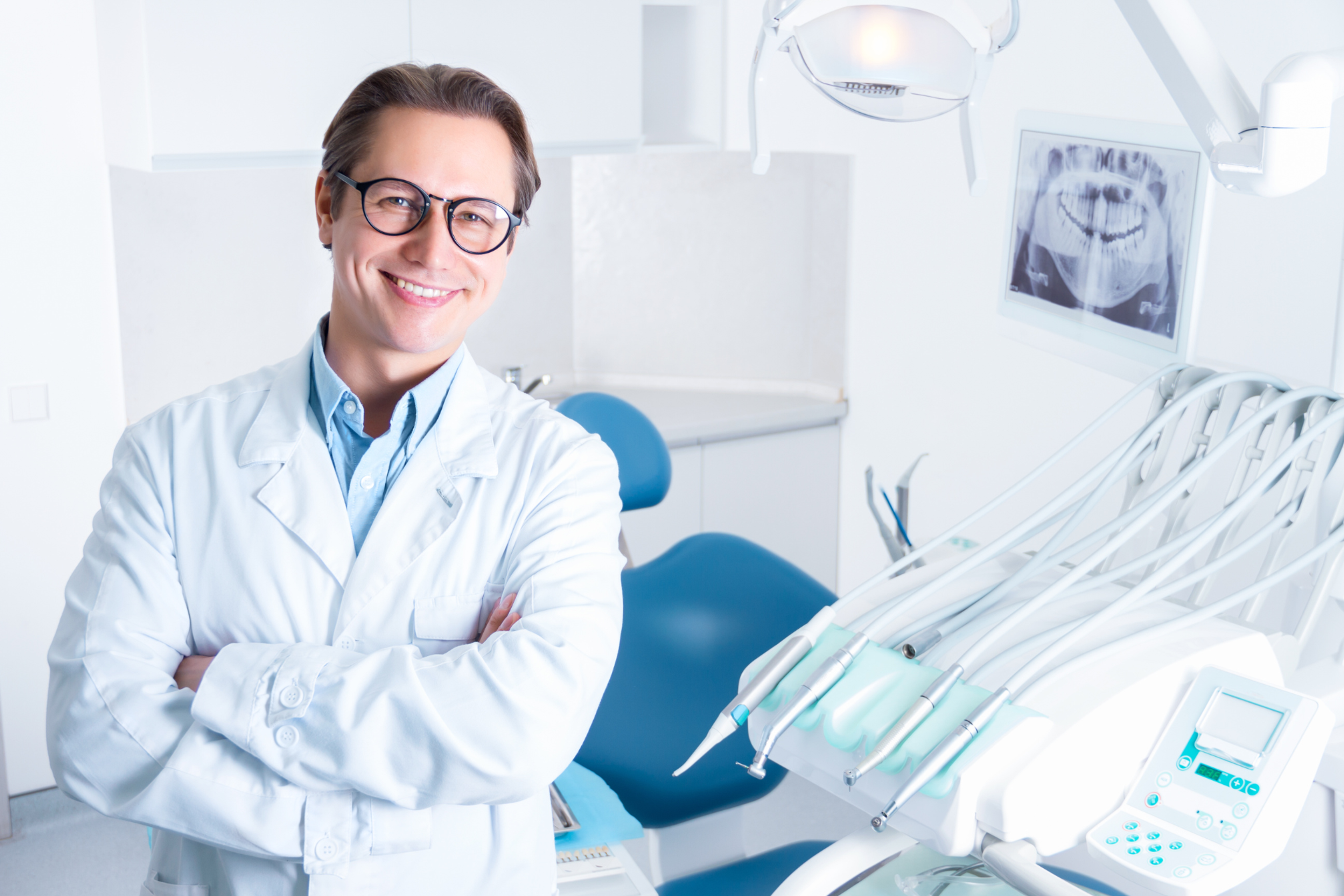DMD vs. DDS: What's the Difference and Which is Better? | Leland
DMD vs DDS explained: Understand how these dental degrees compare in training, licensing, and career paths so you can choose confidently.
Posted November 17, 2025

Join a free event
Learn from top coaches and industry experts in live, interactive sessions you can join for free.
Table of Contents
If you're thinking about becoming a dentist, one question comes up a lot: What’s the difference between a Doctor of Dental Medicine (DMD) and a Doctor of Dental Surgery (DDS)? The names make them sound like separate paths, so many students wonder if one is more advanced, more respected, or preferred by certain dental schools.
The truth is much simpler. Both degrees follow the same curriculum requirements, offer the same education, and qualify graduates to practice dentistry in every state. The difference is not academic, clinical, or practical; it's historical.
By the end, you'll have a clear understanding of how these degrees compare, what they mean for your dental career, and how to choose the best dental school based on your goals.
Why Two Degree Names Exist
The split originated at Harvard Dental School, one of the most prestigious dental schools in the country. Because Harvard traditionally names its medical degrees in Latin, the institution introduced the title Doctor of Dental Medicine, which it believed better aligned with the university’s academic structure. Instead of translating “Doctor of Dental Surgery” literally, Harvard chose terminology that reflected the integration of medicine in dentistry.
Other institutions, including early programs connected to the Baltimore College of Dental Surgery, kept the original Doctor of Dental Surgery designation. As more dental schools opened across the country, some adopted the DDS, others preferred the DMD, and both became permanently established in the field.
This naming divergence persists today, but the underlying programs remain identical according to the American Dental Association, which sets accreditation standards for every dental degree in the United States.
What DMD and DDS Programs Actually Teach
Whether a student enters a DMD program or a DDS program, the educational path is the same. Students complete an undergraduate education with prerequisites in the sciences, then begin a four-year professional program involving biomedical coursework, extensive preclinical training, and hands-on patient care.
During these four years, dental students spend hundreds of hours treating patients under supervision. They learn how to diagnose oral conditions, manage gum disease, treat cavities, perform restorative work, complete tooth extractions, and manage emergencies. Clinical exposure spans every major area of oral health, including general dentistry, pediatric dentistry, oral surgery, and maxillofacial pathology.
Both degrees also require mastery of clinical sciences and lab-based training. Students progress from simulation labs to comprehensive care clinics, where they are expected to function as emerging clinicians. The emphasis is on developing competence in all areas of care that general dentists and new dental graduates are expected to handle.
Licensing, Exams, and Postgraduate Training
Every dental student, regardless of whether they hold a DDS or DMD, must pass the same national and state licensing requirements. This includes the National Board Dental Examination, now integrated into the INBDE for most schools. Clinical board examinations and jurisprudence tests follow, depending on the state.
After licensure, graduates may enter practice immediately as general dentists, or they may pursue additional postgraduate training in specialized fields. Competitive programs in oral surgery, orthodontics, pediatric dentistry, endodontics, prosthodontics, and periodontics accept both DMD and DDS graduates without distinction. Oral and maxillofacial surgery programs in particular attract graduates who want to blend surgical technique with advanced training in anesthesia, pathology, trauma, and maxillofacial surgery.
Whether a graduate is listed as a DDS dentist or a DMD dentist has no impact on their eligibility for residency, fellowship, or academic pathways.
Is One Degree More Prestigious?
The perception that certain programs may appear more prestigious comes from the reputation of the school, not the letters on the diploma. A degree from Harvard University, for example, carries weight because of Harvard’s long-standing academic reputation, not because the credential says Doctor of Dental Medicine instead of Doctor of Dental Surgery.
Across the profession, faculty members, licensing boards, residency directors, and employers view DDS and DMD degrees as completely interchangeable. Both are considered the same degrees, and both represent the completion of an accredited, rigorous curriculum that prepares graduates to practice dentistry safely and competently.
Career Path and Scope of Practice
A DMD and a DDS provide access to the same professional opportunities. Graduates can open private practices, join group clinics, work in community health settings, or pursue positions in hospitals and academic institutions. Both degree types qualify dentists to diagnose oral diseases, perform restorative procedures, manage emergencies, and provide long-term dental care for patients of all ages.
If a dentist chooses to specialize, their degree title will not matter. Residency directors focus on clinical performance, academic strength, letters of recommendation, professionalism, and board exam results. After residency, specialists may work as oral surgeons, orthodontists, pediatric dentists, endodontists, periodontists, or prosthodontists, with equal recognition across the board.
Which Is Better: DMD or DDS?
Neither degree is inherently better, more advanced, or more respected. The distinction comes down to the tradition of the dental school, not a difference in academic level or clinical ability. Both degrees prepare graduates to treat patients, operate practices, perform restorative and surgical procedures, and contribute meaningfully to their communities through improved oral health.
If you're trying to decide which path to pursue, shift your attention from the degree title to the school itself. Consider the quality of its clinical exposure, the strength of its faculty, the opportunities for research, the depth of its patient pool, and the support it offers for competitive specialties such as oral surgery or pediatric dentistry. The environment, mentorship, curriculum design, and patient experience will influence your development far more than the letters printed on your diploma.
Find the Path That Fits You
Answer the following questions honestly to assess which degree path is most suitable for your career goals. Rate each statement from 1 (strongly disagree) to 10 (strongly agree) based on your priorities. At the end, calculate your score. Your higher score in each section will guide you toward the best fit.
1. How important is it to you to have a strong focus on biomedical sciences and medicine as part of your dental education?
- 1-3: I prefer a hands-on, surgery-focused curriculum.
- 4-7: I’m comfortable with a balance of medicine and surgery.
- 8-10: I value a focus on dental medicine and its integration with medical sciences.
Score: [ ]
2. How important is early, direct clinical experience treating patients during dental school?
- 1-3: I prefer a research-driven curriculum over early clinical exposure.
- 4-7: I want a balance between clinical and academic training.
- 8-10: Real-world clinical experience is my top priority.
Score: [ ]
3. Do you see yourself pursuing a career that involves oral surgery or advanced surgical procedures?
- 1-3: I’m not interested in surgery at all.
- 4-7: I’m open to surgery, but prefer a broader practice.
- 8-10: I want to specialize in oral surgery or a surgical field.
Score: [ ]
4. How important is it to attend a prestigious dental school known for its reputation, rather than focusing on the degree title?
- 1-3: The program quality matters most, not the degree name.
- 4-7: Reputation matters, but I care about the school’s clinical education.
- 8-10: I want to attend a prestigious school, even if the degree name differs.
Score: [ ]
5. Do you know which dental specialty (e.g., oral surgery, orthodontics, pediatric dentistry) you want to pursue after graduation?
- 1-3: I’m still exploring and keeping my options open.
- 4-7: I’m interested in a few specialties, but flexible.
- 8-10: I know the specialty I want and want the best program for that.
Score: [ ]
6. Would you prefer to gain experience in multiple specialties during dental school?
- 1-3: I prefer to focus on one area of dentistry, like general dentistry.
- 4-7: A balance of general and specialty exposure is ideal.
- 8-10: I want exposure to multiple specialties to build a diverse skill set.
Score: [ ]
7. How important is networking with faculty, mentors, and peers for your dental career?
- 1-3: I prefer focusing on studies and clinical work, not networking.
- 4-7: Networking is important, but I also value independent study.
- 8-10: Networking is critical for building relationships and advancing my career.
Score: [ ]
8. Do you see yourself opening your own practice or joining a well-established group practice after graduation?
- 1-3: I’m more interested in academic roles or healthcare organizations.
- 4-7: I could go either way, depending on my career path.
- 8-10: I plan to open my own practice and want a program that prepares me for that.
Score: [ ]
9. How important is the financial aspect, including tuition costs and scholarships, when choosing between DMD and DDS programs?
- 1-3: I prioritize program quality over cost.
- 4-7: I want a program that balances quality with cost.
- 8-10: Financial fit is critical for me when choosing a program.
Score: [ ]
10. How much does the degree title influence your long-term career vision?
- 1-3: The degree title doesn’t matter. I focus on the education and skills I gain.
- 4-7: The title matters, but I understand other factors matter more.
- 8-10: The degree title is a significant part of my long-term career plans.
Score: [ ]
How to Interpret Your Results
Mostly 1-30 Points: You may value hands-on clinical experience and flexibility over the prestige or title. Consider schools that offer early clinical exposure and a broad range of specialties.
Mostly 31-70 Points: You likely want a balanced program with a strong clinical foundation and opportunities for specialization. Schools that provide mentorship and networking opportunities may be a good fit.
Mostly 71-100 Points: You are focused on prestigious programs with clear career paths in mind. Choose a school that offers advanced specialty training, strong faculty mentorship, and the best clinical resources for your chosen career trajectory.
Your Next Steps:
- Research dental schools: Look into schools that align with your top priorities (e.g., clinical exposure, specific specialties, networking opportunities).
- Visit campuses or talk to students: Gain insights into the clinical culture and faculty support at various schools.
- Evaluate costs and financial aid: Make sure the school you choose fits your financial goals and offers the best scholarships or loan options.
Not Sure Yet? Compare Side-by-Side
| Category | DMD (Doctor of Dental Medicine) | DDS (Doctor of Dental Surgery) |
|---|---|---|
| Degree Meaning | Emphasizes the “Dental Medicine” naming tradition, introduced by Harvard University | Reflects the historic “Dental Surgery” designation used by early U.S. dental schools |
| Curriculum & Training | Follows the same curriculum requirements, biomedical sciences, and clinical training | Identical curriculum with the same clinical hours and academic structure |
| Accreditation | Accredited by the American Dental Association (ADA) | Accredited by the American Dental Association (ADA) |
| Licensing Requirements | National Board/INBDE + state clinical exams | National Board/INBDE + state clinical exams |
| Clinical Scope | Trained in general dentistry, oral surgery, pediatric dentistry, restorative care, and diagnosis | Trained in general dentistry, oral surgery, pediatric dentistry, restorative care, and diagnosis |
| Career Path | Equal access to residencies, specialties, private practice, academia, and hospital dentistry | Equal access to residencies, specialties, private practice, academia, and hospital dentistry |
| Prestige | Depends on the dental school, not the degree title | Depends on the dental school, not the degree title |
| Overall Difference | Same degree, different name | Same degree, different name |
Final Takeaway: The Degree Title Doesn’t Define Your Career
The debate between the two often arises among applicants, but within the profession, the titles hold equal value. Both degrees follow the same accredited structure, require the same national examinations, and produce dentists fully qualified to care for patients, manage complex cases, and pursue advanced training.
What ultimately matters is the education you receive, the clinical experience you build, the mentors who guide you, and the commitment you bring to your training. Whether you pursue a DDS degree or a DMD degree, your success as a dentist will come from your skill, integrity, and dedication to patient care, not the wording on your diploma.
Make the Right Choice for Your Career
Choosing between a DMD and a DDS is a big decision, and you don’t have to navigate it alone. Our expert coaches specialize in helping dental school applicants make confident, informed choices about their path.
To get a deeper look into the top dental programs, explore The Top 25 Dental Schools – and How to Get In. This guide can help you identify the best options for your career based on your goals.
Want to dive deeper? Join our free events and bootcamps, where you’ll get hands-on advice, actionable tips, and insider knowledge to help you succeed in the dental school application process. If you have questions or need personalized advice, book a free consultation with one of our expert coaches. We’re here to guide you every step of the way and help you make the best decision for your future.
See: The 10 Best Dental Coaches for Application & Interview Prep
Read these next:
- An In-Depth Guide to the Dental School Application Timeline
- Should You Become a Dentist? Pros, Cons, and How to Decide
- The Most Common Dental School Interview Questions–and How to Answer Them
- Writing a Winning Dental School Personal Statement
- How to Write a Powerful Dental School Letter of Intent
FAQs
Is a DMD better than a DDS?
- No, both degrees are identical in terms of education and clinical training. The difference is historical: DMD focuses on dental medicine, while DDS focuses on oral health surgery
Can a DMD perform oral surgery?
- Yes, a DMD can perform basic oral surgery like tooth extractions. However, more complex surgeries typically require additional specialization in oral surgery.
Can general dentists perform oral surgery? If so, what kind?
- Yes, general dentists can perform simple oral surgeries, such as tooth extractions and some dental implants, but complex surgeries often require a specialist.
Do patients prefer a DDS or DMD?
- Patients don’t usually prefer one over the other. What matters is the dentist’s experience, skills in procedures like root canals, and continuing education.
Is DDS harder than DMD?
- No, both degrees require the same education and training. The difference is in naming, not difficulty.

























